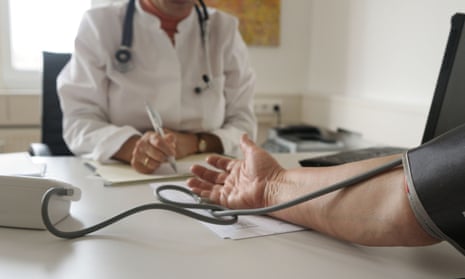Women who are abused by their partner suffer significant physical and mental health problems that persist throughout their lifetime, the first long-term Australian study to investigate the health impacts of intimate partner violence has found.
The research, led by the University of Newcastle’s research centre for generational health and ageing, followed 16,761 participants from the Women’s Health Australia study for 16 years from 1996.
Three cohorts of women, born from 1921-26, 1946-51 and 1973-78, were asked during surveys taken throughout their lives whether they had ever been in a violent relationship, and about their physical and mental health. The study only considered violence from a partner or spouse, and not general family violence, for example perpetrated by other family members.
At the start of the study, 8% of women born 1973-78, and 12% of women born 1946-51, had experienced intimate partner violence. Sixteen years later, 26% of women born 1973-78 had experienced intimate partner violence compared with 16% of women born 1946-51.
Of the 3,568 women born 1921-26, 184 (5%) reported having experienced intimate partner violence in the first survey. This group were only asked about their experience of intimate partner violence during the first survey, given most of those women would be unlikely to have entered into a new relationship, but continued to answer questions about their health in subsequent surveys.
Despite the narrow definition of family violence used by researchers, “The results are striking,” they write in their findings, published in the journal, PLoS ONE, on Tuesday.
Across health measures including physical functioning, social functioning, general health, bodily pain, vitality, and emotional and mental health, women who had experienced intimate partner violence “recorded significantly poorer health than women who never experienced intimate partner violence, across generations and along the life course”.
“Results for physical health are strongly suggestive of a lifetime deficit in physical health that is associated with intimate partner violence,” the paper says.
While health is expected to worsen as people age, the physical functioning and general health of women who experienced intimate partner violence was consistently worse than those who had not experienced it.
While previous research identified similar health problems in family violence survivors, this study showed that the issues persisted for years.
Prof Deborah Loxton led the research and has comprehensively studied the health and wellbeing of women who have lived with violent partners. She said intimate partner violence was associated with a higher prevalence of chronic pain and headaches, cervical cancer, chronic disease and problems with physical function, which affected quality of life.
“I think what was really interesting about our findings was that women in their 20s with poor mental health were more prone to experience domestic violence at a later date,” she said.
“Women with the best mental health at the first survey didn’t enter into a violent relationship as commonly as other women. So we concluded from this research that poor mental health was a risk factor for entering a violent relationship.”
Moo Baulch, the chief executive of Domestic Violence New South Wales, said the findings highlighted the importance of ensuring young women had good mental health and access to health services.
“Studies like this show the better we are at early intervention and education, the better we can be at prevention,” Baulch said.
“I think we are just starting to have a conversation about how significant the impacts of violence are and what sort of investment we need to make to have a positive impact and change this.”
Loxton said much of the focus for interventions and support for family violence was around the immediate crisis period, with many people believing that “if she leaves, then she’ll be all right”.
“Unfortunately, the reality for one in four Australian women is that the physical and mental health impacts of domestic violence could last a lifetime,” she said. “We need policies and interventions in place to provide support for the women who are still feeling the impact 10 or 20 years later.
